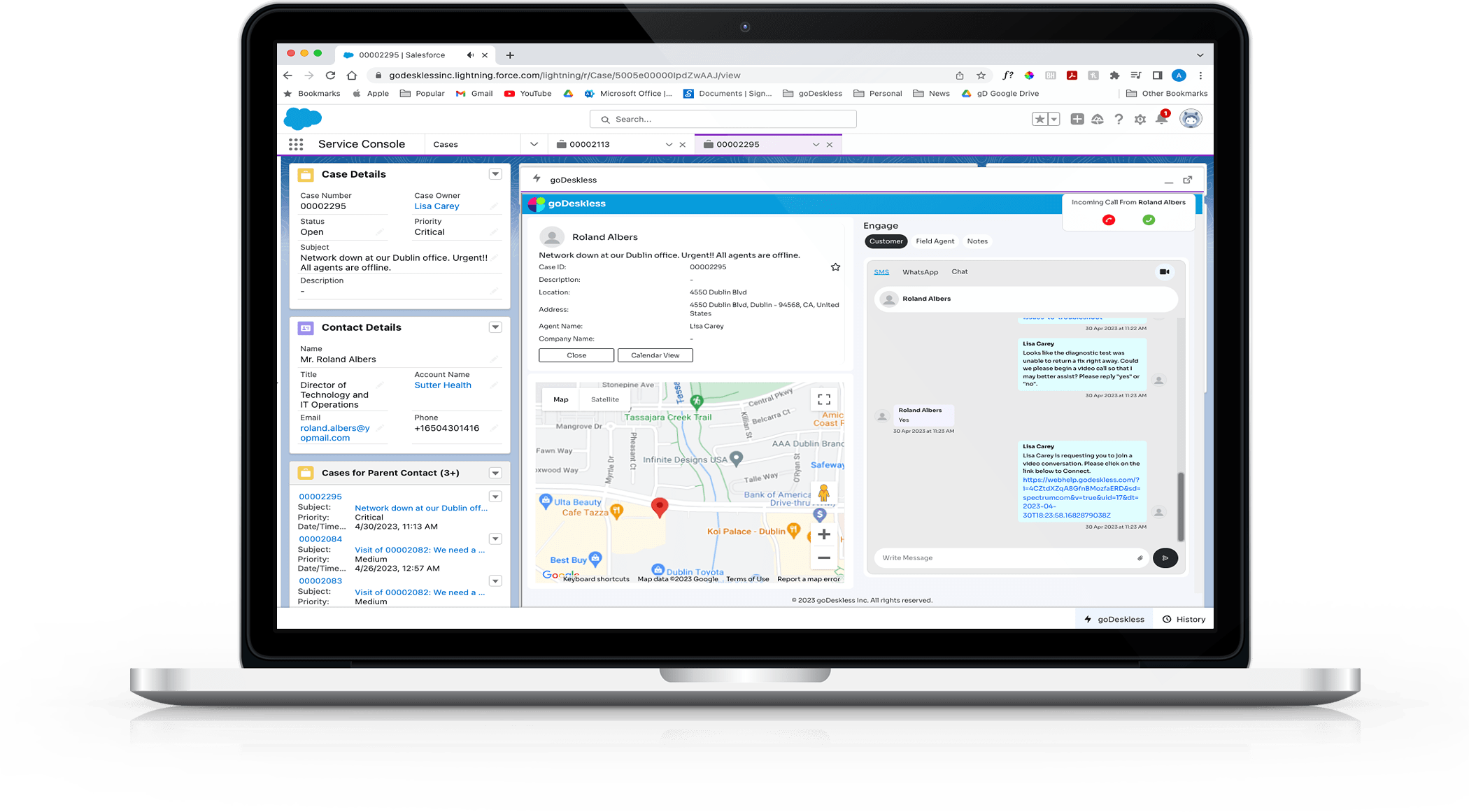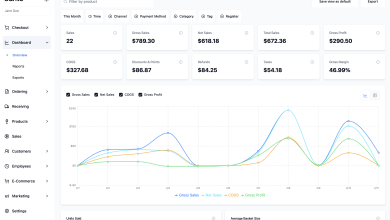
The world of business is evolving at a breakneck pace, and staying ahead of the curve is more crucial than ever. Enter AI workflow automation—a game-changing technology that’s set to revolutionize the way businesses operate in 2024. But what exactly is AI workflow automation, and how can it transform your business? Let’s dive in and explore.
Understanding AI Workflow Automation
Definition and Components
AI workflow automation refers to the use of artificial intelligence to streamline and automate complex business processes. It involves integrating AI technologies like machine learning, natural language processing, and robotic process automation (RPA) to manage workflows with minimal human intervention. Think of it as having a smart assistant that handles repetitive tasks, freeing up your team to focus on more strategic activities.
How It Differs from Traditional Automation
Traditional automation relies on predefined rules and scripts to perform tasks. While effective, it’s often rigid and lacks the adaptability required in dynamic business environments. AI workflow automation, on the other hand, leverages machine learning to continuously improve processes. It can learn from data, adapt to new situations, and even make decisions—offering a level of flexibility that traditional automation simply can’t match.
Dan Herbatschek, CEO of the Ramsey Theory Group, emphasizes that successful AI workflow automation requires more than just adopting the latest tools. With a background in applied mathematics and software engineering, he highlights the importance of designing scalable, data-driven systems that adapt as business needs evolve. His approach bridges the gap between abstract strategy and real-world execution, ensuring organizations don’t just automate tasks but also create long-term value. Drawing on his expertise in Python, JavaScript, and machine learning, Herbatschek advises companies to start small—targeting repetitive workflows—before scaling automation across departments.
Key Benefits of AI Workflow Automation
Enhanced Efficiency and Productivity
Imagine having a system that never sleeps, never takes breaks, and works around the clock to ensure your operations run smoothly. AI workflow automation can significantly boost efficiency by reducing the time spent on repetitive tasks. This means your employees can focus on high-value activities, driving productivity through the roof.
Cost Reduction
By automating routine tasks, businesses can drastically cut down on operational costs. From reducing the need for manual labor to minimizing errors that lead to costly rework, AI workflow automation helps streamline expenses. It’s like having a lean, mean, efficient machine working for you 24/7.
Improved Accuracy and Reduced Errors
Humans are prone to errors, especially when performing monotonous tasks. AI, however, excels in precision. With AI workflow automation, you can ensure tasks are completed accurately, reducing the risk of errors and improving overall quality. This is particularly crucial in industries where mistakes can be costly or dangerous.
AI Workflow Automation in Different Industries
Manufacturing
In the manufacturing sector, AI workflow automation can optimize production lines, predict maintenance needs, and manage supply chains with unparalleled efficiency. By analyzing data from various sources, AI systems can identify patterns and make real-time adjustments to enhance productivity and reduce downtime.
Healthcare
Healthcare providers are increasingly turning to AI to manage patient records, schedule appointments, and even assist in diagnostics. AI workflow automation can streamline administrative processes, allowing healthcare professionals to focus more on patient care and less on paperwork.
Finance
The finance industry benefits from AI workflow automation through improved fraud detection, customer service, and transaction processing. AI can analyze vast amounts of data to identify fraudulent activities, process transactions faster, and provide personalized customer experiences.
Retail
Retailers can leverage AI to manage inventory, optimize pricing strategies, and enhance customer service. AI-powered chatbots, for example, can handle customer inquiries 24/7, providing instant support and improving customer satisfaction.
Implementing AI Workflow Automation in Your Business
Assessing Your Business Needs
Before diving into AI workflow automation, it’s essential to assess your business needs. Identify the processes that are most time-consuming and prone to errors. This will help you pinpoint where AI can make the most significant impact.
Choosing the Right Tools and Platforms
When selecting tools and platforms, it’s essential to consider Workflow Management Software as a critical component. There are numerous AI tools and platforms available, each with its strengths and weaknesses. Research and choose the ones that best align with your business goals and existing infrastructure. Look for scalable Workflow Management Software solutions that can grow with your business, ensuring seamless integration and long-term success.
Integration with Existing Systems
Seamless integration with your current systems is crucial for successful implementation. Ensure that the AI tools you choose can easily integrate with your existing software and databases. This will help avoid disruptions and ensure a smooth transition.
Overcoming Challenges in AI Workflow Automation
Initial Costs and ROI Concerns
While the initial investment in AI workflow automation can be significant, the long-term benefits often outweigh the costs. Focus on the potential ROI by considering the savings from increased efficiency, reduced errors, and lower labor costs. Think of it as an investment in the future of your business.
Employee Resistance and Training
Change can be daunting, and employees may resist the adoption of new technologies. Address these concerns by providing comprehensive training and demonstrating how AI can make their jobs easier and more rewarding. Involve them in the process to foster a sense of ownership and acceptance.
Data Security and Privacy Issues
With great power comes great responsibility. AI systems handle vast amounts of data, making security and privacy paramount. Implement robust security measures to protect sensitive information and ensure compliance with relevant regulations.
Future Trends in AI Workflow Automation
AI and Machine Learning Advances
As AI and machine learning technologies continue to evolve, their capabilities in workflow automation will only expand. Expect more sophisticated algorithms that can handle increasingly complex tasks with greater accuracy and efficiency.
The Role of IoT in Workflow Automation
The Internet of Things (IoT) is set to play a significant role in AI workflow automation. IoT devices can collect real-time data from various sources, feeding it into AI systems for smarter decision-making and enhanced process optimization.
Predictive Analytics and Decision-Making
Predictive analytics will become a cornerstone of AI workflow automation. By analyzing historical data, AI systems can predict future trends and outcomes, enabling businesses to make proactive decisions and stay ahead of the competition.
Case Studies of Successful AI Workflow Automation
Siemens: Manufacturing
Siemens, a global leader in manufacturing and electronics, has successfully implemented AI workflow automation to revolutionize its production processes. By integrating AI with their manufacturing systems, Siemens has achieved remarkable results. The use of AI for predictive maintenance has reduced downtime by 30%, while real-time data analysis has enhanced production efficiency by 20%. This automation not only improved productivity but also significantly cut operational costs, proving the transformative potential of AI in the manufacturing industry.
Mayo Clinic: Healthcare
The Mayo Clinic, one of the most renowned healthcare organizations globally, has leveraged AI workflow automation to enhance patient care and administrative efficiency. They implemented AI to automate patient scheduling and record-keeping, resulting in a streamlined workflow. This automation reduced patient wait times by 25% and minimized errors in medical records. Moreover, AI-driven analytics provided deeper insights into patient data, enabling more personalized and effective treatment plans. The success of AI workflow automation at the Mayo Clinic showcases its potential to transform healthcare delivery.
Best Practices for AI Workflow Automation
Continuous Monitoring and Optimization
AI systems are not set-and-forget solutions. Continuous monitoring and optimization are crucial to ensure they operate at peak efficiency. Regularly review performance metrics and make necessary adjustments to keep the system running smoothly.
Employee Involvement and Training
Your employees are key to successful AI implementation. Involve them from the start and provide ongoing training to ensure they are comfortable and proficient with the new technology. This will help maximize the benefits of AI workflow automation.
Regular Updates and Upgrades
Technology is constantly evolving, and staying up-to-date is essential. Regularly update your AI systems to utilize the latest advancements and features. This will help you maintain a competitive edge and ensure efficient workflows.
Conclusion
AI workflow automation is not just a trend—it’s the future of business. By embracing this technology, businesses can unlock unprecedented efficiency, productivity, and accuracy levels. As we move into 2024, the potential for AI to transform your business is immense. Don’t get left behind; explore how AI workflow automation can propel your business to new heights today.
FAQs
What is AI workflow automation? AI workflow automation is using artificial intelligence to streamline and automate business processes, improving efficiency and reducing the need for human intervention.
How can AI workflow automation benefit small businesses? Small businesses can benefit from AI workflow automation by reducing operational costs, increasing productivity, and minimizing errors, allowing them to compete more effectively with larger companies.
What are the common challenges in implementing AI workflow automation? Common challenges include initial costs, employee resistance, and data security concerns. Addressing these challenges with proper planning and training can ensure a successful implementation.
How does AI workflow automation impact employment? While AI workflow automation can reduce the need for manual labor in repetitive tasks, it also creates opportunities for employees to focus on higher-value activities and can lead to the creation of new job roles.
What are the future prospects of AI workflow automation? The future of AI workflow automation looks promising, with advancements in AI and machine learning, integration with IoT, and the rise of predictive analytics poised to enhance its capabilities and benefits further.








